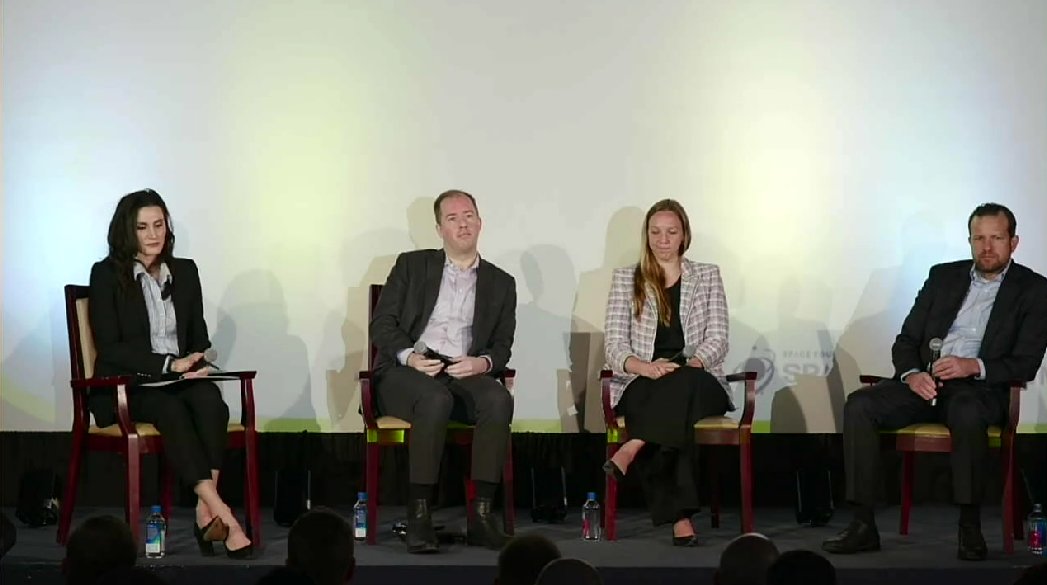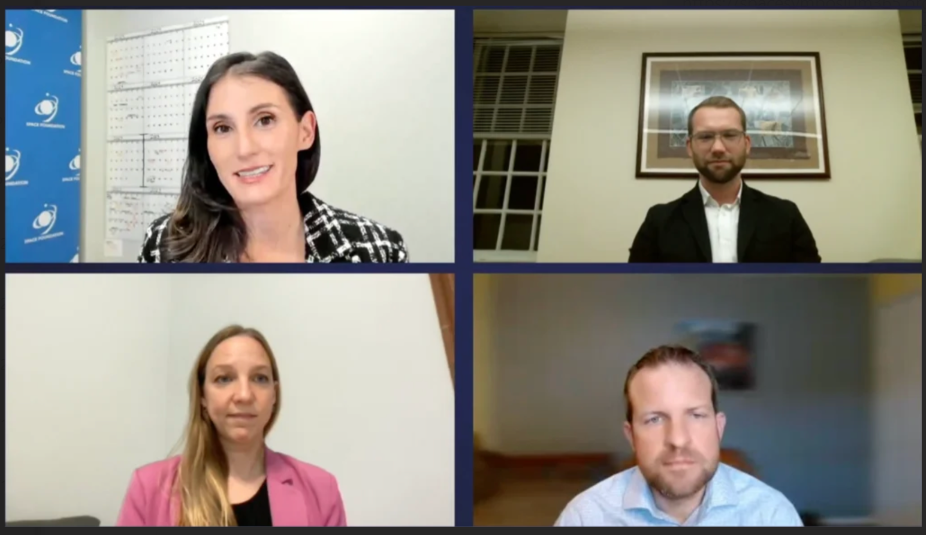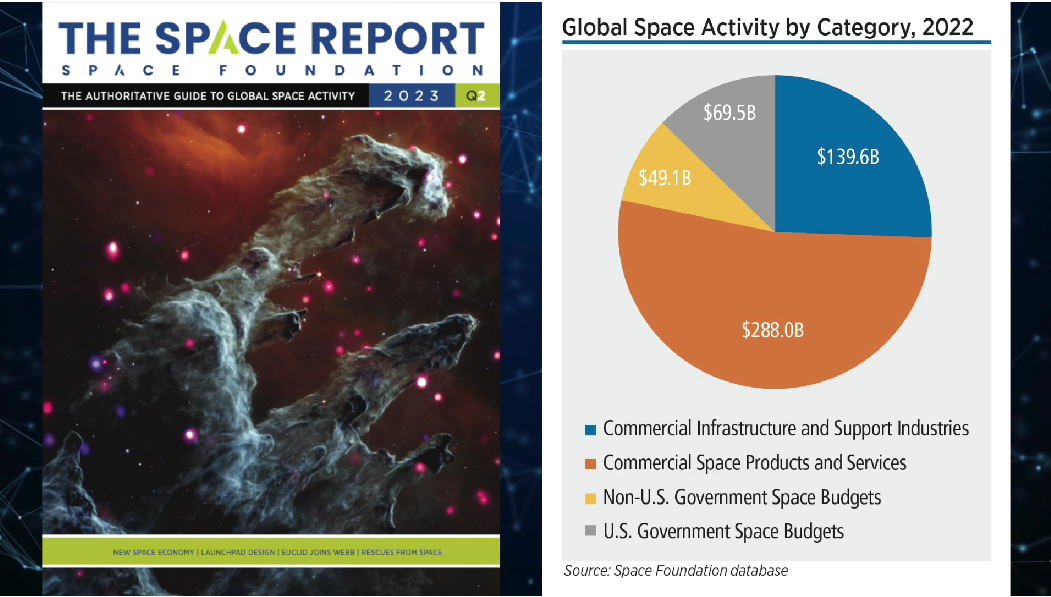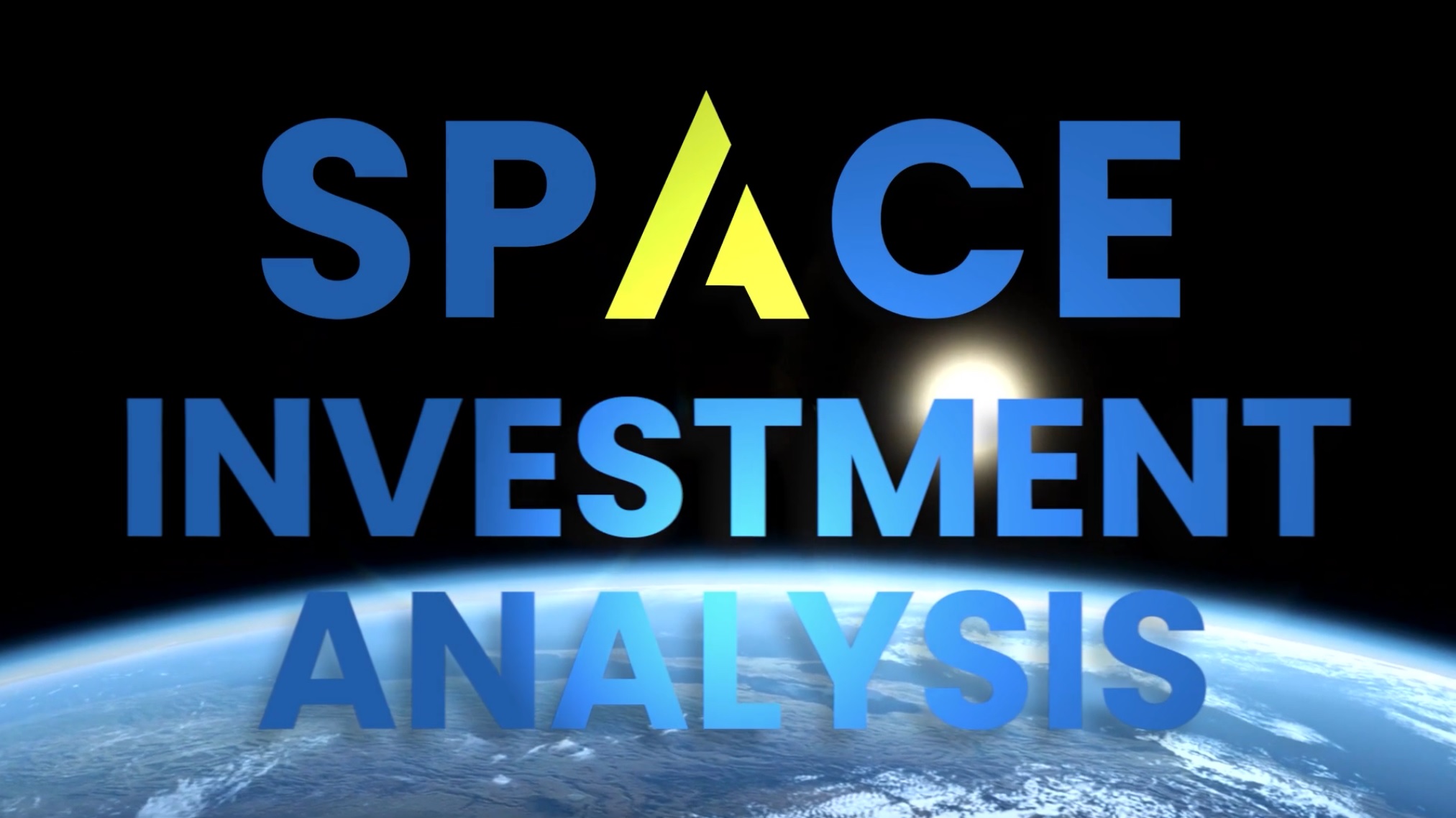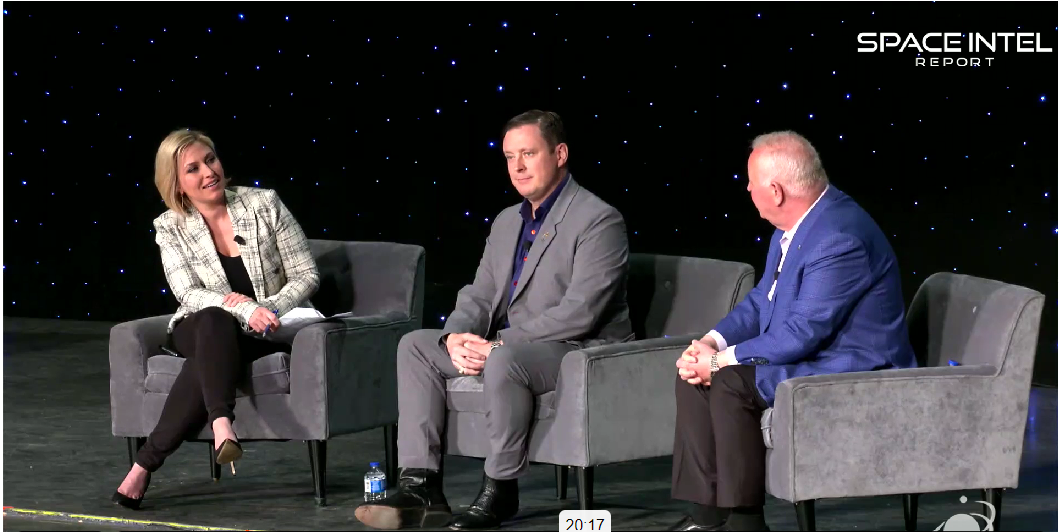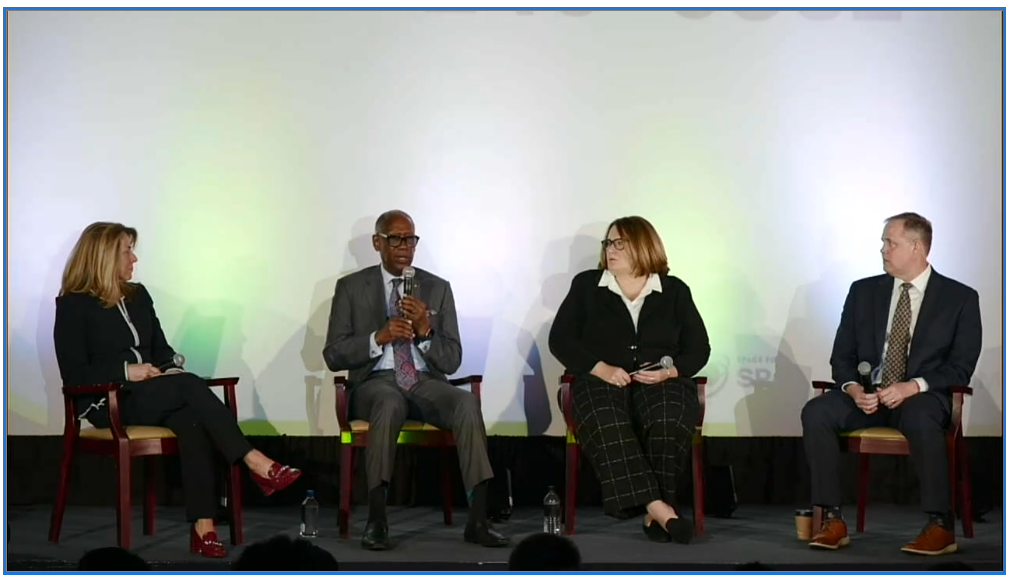After Record Year, Investment Panel Predicts Space Industry Continues Surge in 2024
Originally aired on: January 29, 2024
Following a record-setting year for launches and satellites sent to orbit, a panel of experts convened by Space Foundation expect the space industry will continue to accelerate in 2024 as more people around the world adopt new services made possible by spacecraft.
The Symposium 365 Space Investment Analysis panel, led by Space Foundation’s Kelli Kedis Ogborn, vice president for Space Commerce and Entrepreneurship, noted that services offered to customers on the ground continue to drive the rapid pace of launch, with nearly 2,800 spacecraft heading aloft last year on 212 successful launches.
“It will not be the high-water mark for launches,” predicts Brendan Rosseau, a Harvard Business School teaching fellow who specializes in the space industry. “We are really just getting started.”
New Year Brings New Opportunities
Eight days into 2024, the successful maiden flight of United Launch Alliance’s Vulcan launch vehicle kicked off a race to orbit. As many as 14 new launch vehicles worldwide are expected to take flight this year. And with more than 20,000 satellites licensed by the Federal Communications Commission awaiting launch, the newest launch vehicles could draw a crowd of customers.
“It’s ultimately a fantastic thing,” said Justin Cadman, who monitors investment opportunities in the space industry as co-CEO at Quilty Space. “If you are launching a constellation of satellites, you are getting bids from a number of players.”
The United States boasted biggest share of 2023’s launches, but commercial players rather than the military or governments dominated the field, accounting for 90% of satellites sent to orbit last year. Mariel Borowitz, a Georgia Tech professor specializing in space policy, said the commercial strength comes as the U.S. and its allies rely more on commercial spacecraft to accomplish civil government and military tasks. Commercial launches last year, while dominated by communications satellites, also included Earth observation, remote sensing, and on-orbit servicing spacecraft.
“The U.S. civil government and military are using a lot of those commercial capabilities,” Borowitz said.
Start-ups Could Struggle as Investors Seek Profits
While the pace of launch heated in 2023, space investment returned to historic normalcy after a period of heated buying. Cadman said factors, including rising interest rates and what could be a growing aversion to risk, could limit capital for space start-ups in 2024.
“Reality has set in that it’s hard, and not all of these companies are going to be successful,” he said.
But as the investment market reverted to normalcy after frenzied spending on space firms in 2021, a group of more-focused investors has kept the industry moving forward, Borowitz said. This group seeks opportunities for profit that accompany space technology.
“It’s a different mindset coming in,” she said.
Workforce Needs in Spotlight
The growing space industry in 2023 had to battle against other market sectors to attract and retain workers, but college programs that provide hands-on space experience helped fill the workforce pipeline. Those programs have put 260 satellites into orbit since 2020.
Rosseau said that satellite-building programs help lure college students into the space industry, but educators are also working to give students exposure to a broader slate of topics, from space policy to entrepreneurial skills.
“There’s such encouraging momentum in the academic world, but we have a lot of room to grow,” he said.
The data used by the panelists is included in The Space Report’s latest edition, released Jan. 23. Find it and a trove of historical data and interactive tables online at thespacereport.org.
MOST RECENT VIDEOS
Symposium Highlights
Late Breaking News: Intuitive Machines Live from Space Symposium 2024
Originally aired on: April 11, 2024
Space Investment Analysis
Symposium Highlights
Space Investment Analysis: Live from the 2024 Space Symposium
Originally aired on: April 8, 2024
Space Matters
Symposium Highlights
Space Matters: Live from the 2024 Space Symposium
Originally aired on: April 8, 2024




